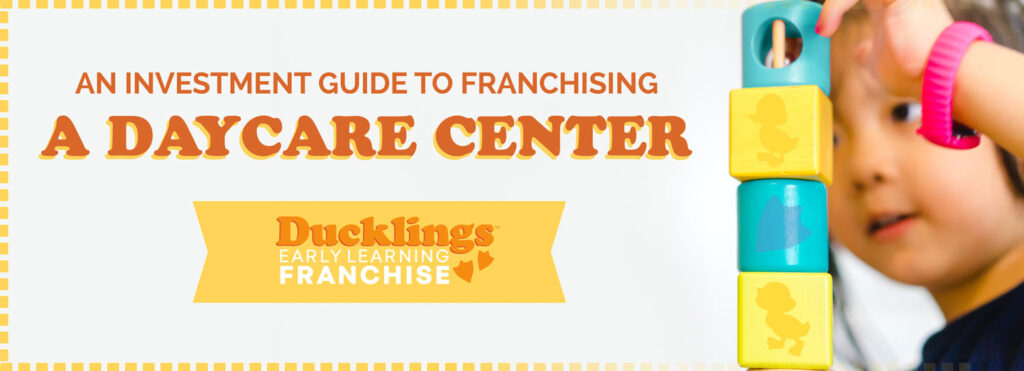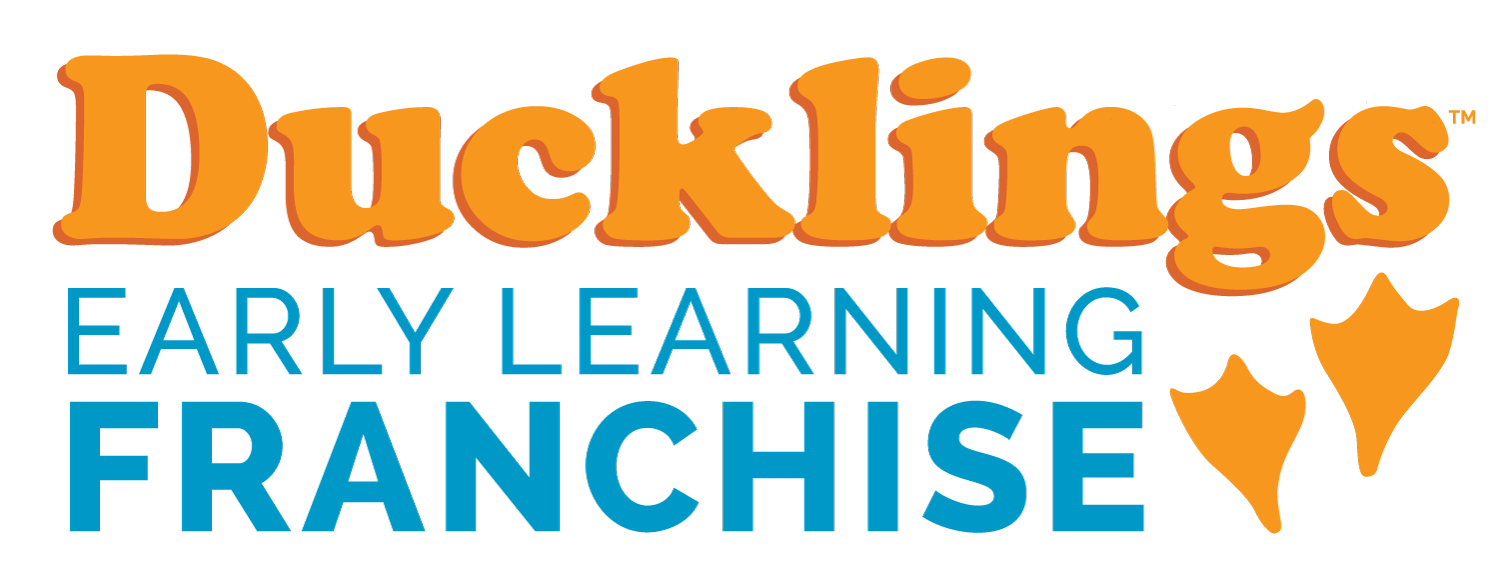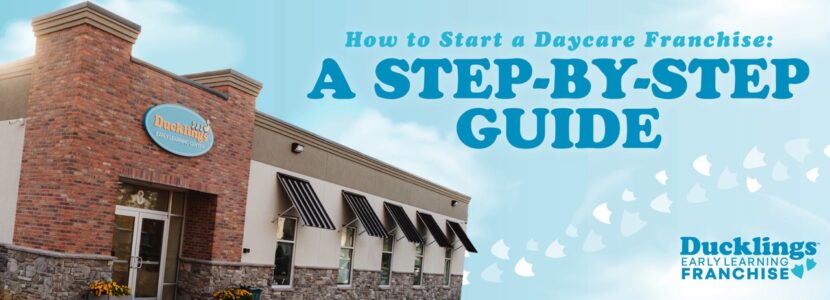The daycare industry plays a crucial role in society, providing essential childcare services to working parents. Over the past decade, the demand for high-quality daycare has surged due to increasing numbers of dual-income households and the growing recognition of early childhood education’s importance. This market growth trend is set to continue, with an expected CAGR of 5.86% from 2024 and 2030, according to Grand View Research. The industry has adapted to these needs by offering diverse programs for various developmental stages, from infancy to preschool.
Current trends in the daycare industry include a focus on educational curriculums, the integration of technology for enhanced learning experiences, and a heightened emphasis on health and safety standards. As parents become more discerning about the quality of care their children receive, the market for reputable and reliable daycare services continues to expand.

Importance of Daycare Franchises
Daycare franchises have emerged as significant players in the childcare industry, offering structured and reliable care services under well-established brand names. These franchises provide a turnkey solution for aspiring entrepreneurs, combining the benefits of an established brand with comprehensive support systems. Yahoo Finance states that in 2023, early childhood education and daycare centers captured 47% of the childcare market size, and these margins continue to grow.
Franchises shape the daycare industry by maintaining consistent quality across multiple locations, ensuring that children receive the same high standard of care and education. For new owners, franchises offer invaluable support, including training programs, marketing assistance, and operational guidance, significantly reducing the challenges of starting a new business.
Why Start a Daycare Franchise?
- Established Brand Recognition: Leverage a well-known brand to attract customers.
- Proven Business Model: Avoid the trial and error of starting from scratch with a tested system.
- Ongoing Support and Training: Benefit from continuous training and operational support.
- Marketing Assistance: Utilize the franchisor’s marketing strategies and resources.
- Lower Risk: Reduced risk compared to starting an independent business due to established processes and systems.
Understanding the Daycare Franchise Model
What is a Daycare Franchise?
A daycare franchise is a business model where an individual (the franchisee) gains rights to operate a daycare center under the branding, systems, and support of an established company (the franchisor). This model allows franchisees to benefit from a well-known brand’s reputation and operational expertise while adhering to the franchisor’s guidelines and standards.
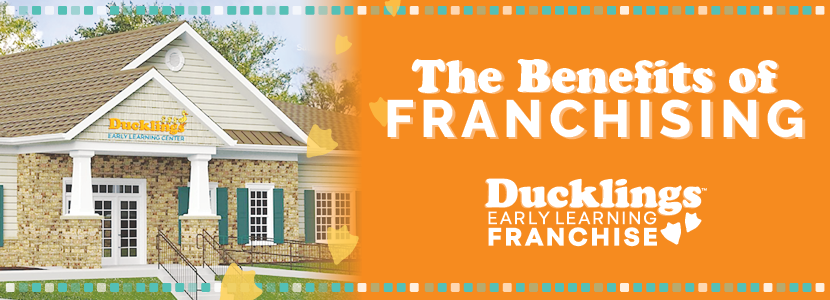
Benefits of Owning a Daycare Franchise
Owning a daycare franchise offers numerous advantages, including:
- Comprehensive Training Programs: Franchisees receive extensive training on all aspects of running a daycare center, from administrative tasks to educational methodologies.
- Access to Proprietary Systems and Curriculum: Franchisors provide access to their exclusive educational programs and operational systems, ensuring consistent care and education across all franchise locations. As the owner of a Ducklings location, you and your staff can access Ducklings activities, lessons, and teaching standards and collaborate with other Ducklings owners and staff.
- Collective Buying Power for Supplies and Equipment: Franchisees benefit from bulk purchasing agreements negotiated by the franchisor, reducing costs for essential supplies and equipment.
Overview of Initial Investment and Ongoing Costs
Starting a daycare franchise involves several initial and ongoing financial commitments, including:
- Initial Investment: This typically includes franchise fees, real estate costs, renovations, equipment purchases, and initial marketing expenses. The total investment can vary significantly depending on the franchise brand and location.
- Ongoing Royalties and Fees: Franchisees are usually required to pay ongoing royalties, a percentage of their revenue, and marketing fees that contribute to the franchisor’s national advertising campaigns.
Researching the Market
Identifying Target Markets
Before starting a daycare franchise, it’s essential to understand the demographic characteristics of your potential market. Conduct research to identify areas with a high concentration of families with young children, as these are your primary customers. Look for regions with growing populations, new housing developments, and limited existing daycare options to ensure a strong demand for your services.
Analyzing Local Competition
Evaluate the competitive landscape in your chosen area. Identify existing daycare centers and analyze their strengths and weaknesses. Consider factors such as their service offerings, pricing, location, and reputation. Understanding your competitors will help you identify opportunities to differentiate your franchise and fill gaps in the market.
Understanding Customer Needs
To tailor your services effectively, it’s crucial to understand the needs and preferences of parents in your target market. Conduct surveys, focus groups, or informal interviews with local families to gather insights on what they value most in a daycare center. Common considerations include flexible hours, educational programs, safety measures, and extracurricular activities. Use this information to design a service offering that meets your community’s specific needs.

Choosing the Right Franchise
What to Look for in a Franchise
Selecting the right daycare franchise is a critical step in your journey. Here are key criteria to consider when evaluating franchise options:
- Reputation and Brand Strength: Choose a franchise with a strong, positive reputation and a well-known brand. This will help attract customers and build trust quickly.
- Support and Training: Ensure the franchisor offers comprehensive training programs and ongoing support. This includes initial training for new franchisees and continuous development opportunities.
- Proven Track Record: Look for a franchise with a successful track record of operating profitable daycare centers. This indicates a solid business model and effective operational systems.
- Curriculum and Educational Philosophy: The franchisor’s curriculum and approach to early childhood education should align with your values and expectations. Investigate their educational philosophy and ensure it meets the needs of your target market.
- Financial Health: Assess the franchisor’s financial stability. A financially healthy franchisor is more likely to provide consistent support and invest in the growth of the franchise network.
- Franchisee Satisfaction: Speak with current and former franchisees to gauge their satisfaction with the franchise. Their experiences can provide valuable insights into the franchisor’s strengths and weaknesses.
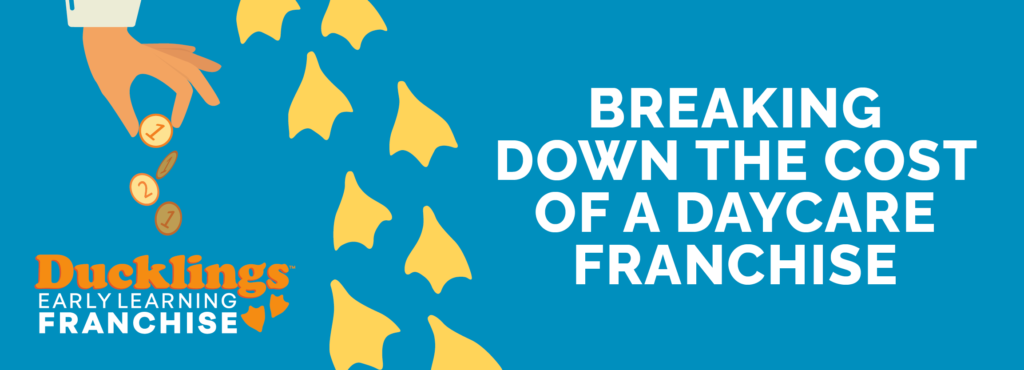
Childcare Financial Planning
Estimating Daycare Startup Costs
Starting a daycare franchise involves significant initial costs. Here’s a breakdown of typical expenses:
- Franchise Fee: This is the initial fee paid to the franchisor for the right to open a franchise. Ducklings Early Learning Center’s franchising fee typically ranges from $75,000 to $55,000.
- Real Estate Costs include the cost of purchasing or leasing a property and any necessary renovations to meet daycare standards. Costs can vary widely based on location and property size.
- Equipment and Supplies: Essential items such as furniture, educational materials, toys, kitchen supplies, and safety equipment need to be purchased.
- Licensing and Permits: Fees for obtaining necessary licenses and permits from local and state authorities.
- Initial Marketing Expenses: Costs associated with initial advertising and promotion to attract customers, such as flyers, local ads, and online marketing. In a typical year following your opening, advertising for your Ducklings location will cost roughly 1% of your gross revenue margins.
Securing Financing
Securing the necessary funding to start your daycare franchise is crucial. Here are some financing options to consider:
- Personal Savings: Using personal savings is a standard method to fund the startup costs.
- Small Business Loans: Many banks and financial institutions offer loans specifically designed for small businesses. The U.S. Small Business Administration (SBA) provides loan programs with favorable terms for franchisees.
- Investors: Bringing in investors can be a way to raise capital, though it often means giving up some equity in your business.
Creating a Business Plan
A solid business plan is essential for securing financing and guiding your business. Key elements of a daycare franchise business plan include:
- Executive Summary: An overview of your business, including the mission statement, services offered, and business objectives.
- Market Analysis: Research your target market, including demographic information, market needs, and competitive analysis.
- Marketing Strategy: A plan for attracting and retaining customers, including pricing strategy, advertising, and promotional activities.
- Operations Plan: Details on the day-to-day operations of your daycare center, including staffing, management, and facility layout.
- Financial Projections: Detailed financial forecasts, including projected income, expenses, cash flow, and profitability over the first few years of operation.
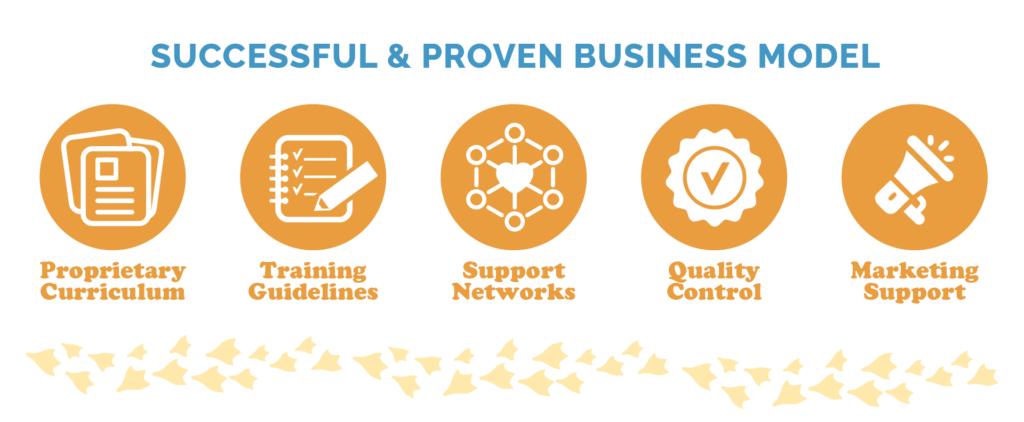
Childcare Startup Legal Considerations
Licensing and Permits
Operating a daycare franchise requires obtaining various licenses and permits to comply with local, state, and federal regulations. These may include:
- Child Care License: Most states require daycare centers to obtain a child care license, which involves meeting specific health, safety, and staffing standards.
- Business License: A general business license from your city or county.
- Health Department Permit: Approval from the health department to ensure the facility meets health and sanitation standards.
- Fire Safety Inspection: Certification from the fire department that your facility meets fire safety codes.
- Zoning Permits: Ensuring the location is zoned for a daycare center.
Understanding Franchise Agreements
A franchise agreement is a legal contract between the franchisor and the franchisee. Key points to consider include:
- Franchise Fees and Royalties: Detailed information on initial franchise fees, ongoing royalties, and other financial obligations.
- Territory Rights: The rights and limitations regarding the geographic area where you can operate your franchise.
- Duration and Renewal: The length of the franchise agreement and conditions for renewal.
- Operational Standards: Specific requirements for maintaining the brand’s standards, including curriculum, training, and daily operations.
- Termination Clauses: Conditions under which the franchisor or franchisee can terminate the agreement.
Insurance Requirements
Adequate insurance coverage is essential to protect your daycare franchise from potential risks. Key insurance policies include:
- General Liability Insurance: Covers claims of bodily injury or property damage occurring on your premises.
- Professional Liability Insurance: Protects against claims of negligence or inadequate care.
- Property Insurance: Covers damage to your daycare center’s physical property and contents.
- Workers’ Compensation Insurance: Required by law in most states to cover medical expenses and lost wages for employees injured on the job.
- Business Interruption Insurance: Provides coverage for lost income if your daycare center is temporarily closed due to a covered event, such as a natural disaster.
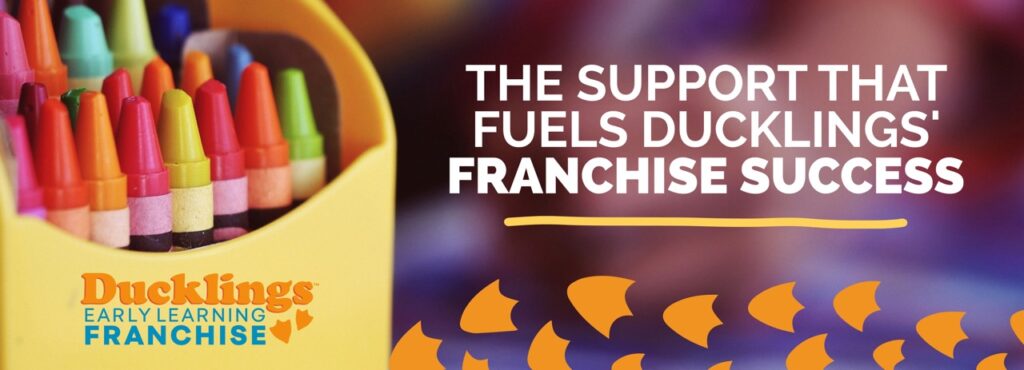
Setting Up Your Daycare Center
Location Selection
Choosing the right location for your daycare center is critical to its success. Consider the following factors:
- Accessibility: Ensure the location is easily accessible for parents, with ample parking and convenient drop-off and pick-up areas.
- Safety: The area should be safe and secure, with low crime rates and safe surroundings.
- Proximity to Target Market: Select a location close to residential areas with a high population of families with young children.
- Zoning Regulations: Verify that the location complies with local zoning laws for operating a daycare center.
Childcare Facility Requirements and Layout
The layout and features of your daycare facility should promote a safe, engaging, and nurturing environment for children. Key considerations include:
- Space Requirements: Ensure sufficient space for different activities, including play areas, learning centers, rest areas, and outdoor play spaces.
- Safety Standards: Meet all safety regulations, including childproofing, fire safety measures, and secure entry points.
- Child-Friendly Design: Create an environment that is welcoming and stimulating for children, with age-appropriate furniture, colorful decor, and educational materials.
- Compliance with Health Codes: Ensure the facility meets all health and sanitation standards, including clean restrooms, proper ventilation, and food preparation areas.
Purchasing Equipment and Supplies
Equipping your daycare center with suitable materials is essential for providing quality care and education. Here’s a list of necessary items and where to buy them:
- Furniture: Child-sized tables, chairs, cribs, and storage units.
- Educational Materials: Books, puzzles, art supplies, and educational toys.
- Safety Equipment: First aid kits, fire extinguishers, security cameras, and safety gates.
- Playground Equipment: Outdoor play structures, tricycles, and sandboxes.
Our Ducklings Early Learning Center Franchise team is here to support all franchise owners in purchasing to ensure every detail is perfect for your students, teachers, and parents.
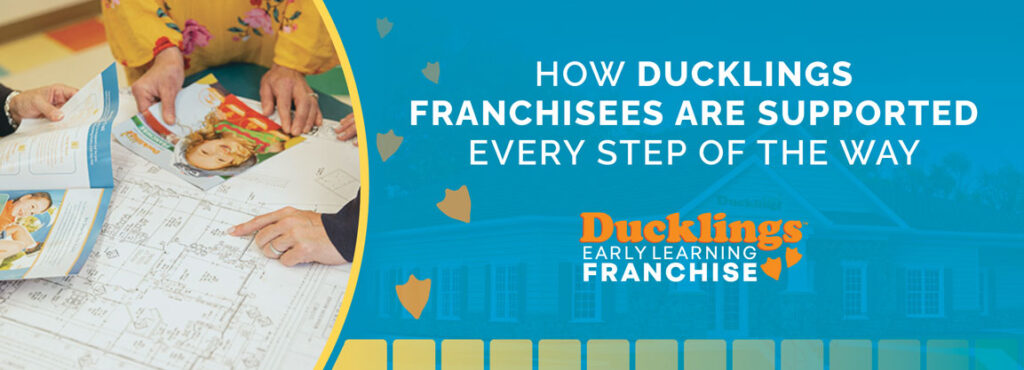
Hiring and Training Daycare Staff
Recruiting Qualified Staff
The quality of your staff directly impacts the success of your daycare franchise. Here are key steps to recruiting qualified employees:
- Job Descriptions: Clearly define roles and responsibilities for each position, including teachers, assistants, and administrative staff.
- Qualifications: Establish minimum qualifications, such as degrees in early childhood education, relevant certifications, and experience working with children.
- Background Checks: Conduct thorough background checks to ensure the safety and well-being of the children in your care.
- Interview Process: Use a structured interview to assess candidates’ skills, experience, and compatibility with your daycare’s philosophy and culture.
- Competitive Compensation: Offer competitive salaries and benefits to attract and retain top talent. Consider including health benefits, retirement plans, and professional development opportunities.
Marketing Your Daycare Franchise
Trusting Marketing to a Proficient Agency
Partnering with a proficient and experienced franchise marketing agency, such as Elysium Marketing Group, can significantly enhance your daycare franchise’s visibility and enrollment rates. A specialized agency can help you develop and implement effective marketing strategies, including:
- Branding: Establishing a solid brand identity that resonates with your target audience.
- Advertising Campaigns: Creating and managing campaigns across various platforms, such as Google Ads, social media, and local media outlets.
- Public Relations: Managing public relations efforts to build and maintain a positive reputation in the community.
Importance of Social Media Marketing and Google My Business
While professional marketing agencies play a crucial role, the franchisee best manages some aspects of marketing. Key activities include:
- Social Media Marketing (SMM): Actively engage with parents and the local community on social media platforms such as Facebook, Instagram, and Twitter. Share updates, educational content, and events to build a solid online presence and foster community engagement.
- Google My Business (GMB): Create and optimize your Google My Business profile to improve your daycare’s visibility in local search results. Ensure your profile includes accurate information, high-quality photos, and positive reviews from satisfied parents.
Daycare Managing Operations
Day-to-Day Management Tips
Effective day-to-day management is crucial for the smooth operation of your daycare franchise. Here are some best practices:
- Routine and Schedules: Establish a consistent daily routine that includes time for learning, play, meals, and rest. This helps children feel secure and supports their development.
- Staff Meetings: Hold regular staff meetings to discuss daily operations, address any issues, and provide ongoing training and support.
- Parent Communication: Maintain open lines of communication with parents through newsletters, emails, and parent-teacher conferences. Keep them informed about their child’s progress and any important updates.
- Record Keeping: Implement efficient systems for record-keeping, including attendance, health records, and incident reports. This ensures compliance with regulations and helps track each child’s development.

Maintaining High Standards of Care
Ensuring high-quality care and compliance with regulations is essential for the success of your daycare franchise:
- Health and Safety Protocols: Follow strict health and safety protocols to create a safe environment for children. Regularly sanitize toys, equipment, and facilities, and conduct routine safety drills.
- Staff Training: Provide continuous training for staff on the latest childcare practices, safety procedures, and educational techniques.
- Quality Assurance: Regularly assess and evaluate the quality of care provided at your daycare center. Use feedback from parents, staff, and external assessments to make necessary improvements.
Handling Parent and Child Feedback
Managing feedback effectively can help improve your services and build strong relationships with parents:
- Feedback Systems: Implement systems for collecting feedback from parents and children, such as surveys, suggestion boxes, and regular meetings.
- Responsive Communication: Address any concerns or complaints promptly and professionally. Show that you value feedback and are committed to making improvements.
- Positive Reinforcement: Celebrate successes and positive feedback with your staff. Recognize their hard work and dedication to providing excellent care.
In this guide, we’ve explored the essential steps and considerations for starting a daycare franchise. From understanding the daycare industry and the benefits of franchising to researching the market, choosing the right franchise, and planning finances, each step is crucial for setting up a thriving daycare center. We’ve also covered legal considerations, setting up your facility, hiring staff, marketing, managing operations, and learning from the experiences of successful franchisees.
Encouragement and Motivation
Starting a daycare franchise is a significant and rewarding undertaking. By joining a franchise, you benefit from established systems, brand recognition, and ongoing support, all of which can help you succeed in the competitive childcare industry. Remember, the journey may have challenges, but your impact on children’s lives and your support to their families is incredibly fulfilling.

Next Steps for Aspiring Daycare Franchise Owners
If you’re ready to take the next step toward owning a daycare franchise, here are some practical steps to get started:
- Research Franchise Options: Begin by researching different daycare franchises to find the best fit for your goals and values.
- Attend Franchise Expos and Seminars: Gain insights and connect with franchisors and current franchisees by attending industry events.
- Prepare Your Finances: Assess your financial situation, explore funding options, and create a detailed business plan.
- Consult with Professionals: Seek advice from legal and financial professionals to ensure you understand all aspects of the franchise agreement and regulatory requirements.
- Reach Out to Franchisors: Contact your shortlisted franchisors, request information, and arrange meetings to discuss your interest and ask questions.
Embarking on this journey requires dedication, planning, and a passion for providing quality childcare. With the right franchise and support, you can create a successful daycare center that positively impacts your community.
